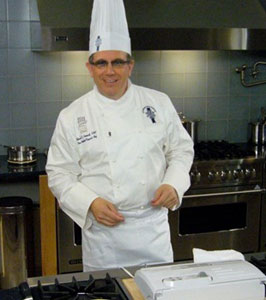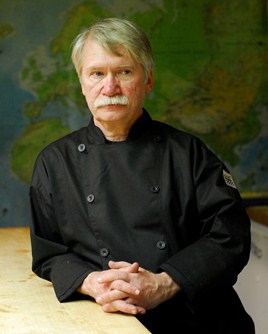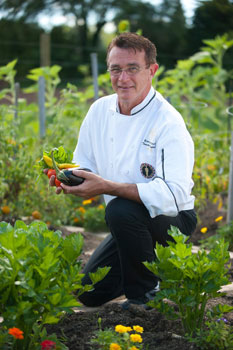Guest Speaker: Focus on Fundamentals
Monday, 04 March 2013 00:35
 Le Cordon Bleu graduates 13,000 students a year. As this author reveals, the biggest change among U.S. schools involves teaching interpersonal skills so that successful grads know what’s going on all over the business.
Le Cordon Bleu graduates 13,000 students a year. As this author reveals, the biggest change among U.S. schools involves teaching interpersonal skills so that successful grads know what’s going on all over the business.
By Tristan Navera
Whether they be aspiring young cooks or experienced and refined restaurateurs, people involved in the profession today are finding that working in a restaurant has drastically different demands than it did five or ten years ago. To the faculty at Le Cordon Bleu, the largest international hospitality institution in the world, these changes mean formal culinary education is more helpful than ever.
Back to Basics
Culinary education has always been essential for its teaching of ground-level cooking skills, says Chef Edward Leonard, Certified Master Chef, Le Cordon Bleu vice president of culinary education and corporate chef for Le Cordon Bleu North America.

 Almost 25% of the motor cortex of the human brain is dedicated to the hands. Yet as chefs, says this former president of a prestigious culinary school, we take better care of our knives.
Almost 25% of the motor cortex of the human brain is dedicated to the hands. Yet as chefs, says this former president of a prestigious culinary school, we take better care of our knives. Physical structure and location are no longer as important as the ability to promote a good food product through both traditional and innovative means. Beyond pop-up restaurants, touch-screen ordering and food trucks, what’s next on the horizon?
Physical structure and location are no longer as important as the ability to promote a good food product through both traditional and innovative means. Beyond pop-up restaurants, touch-screen ordering and food trucks, what’s next on the horizon?
 An English professor expresses his hope for the culinary-arts students he teaches: that they will see how public speaking translates to everyday interactions.
An English professor expresses his hope for the culinary-arts students he teaches: that they will see how public speaking translates to everyday interactions.